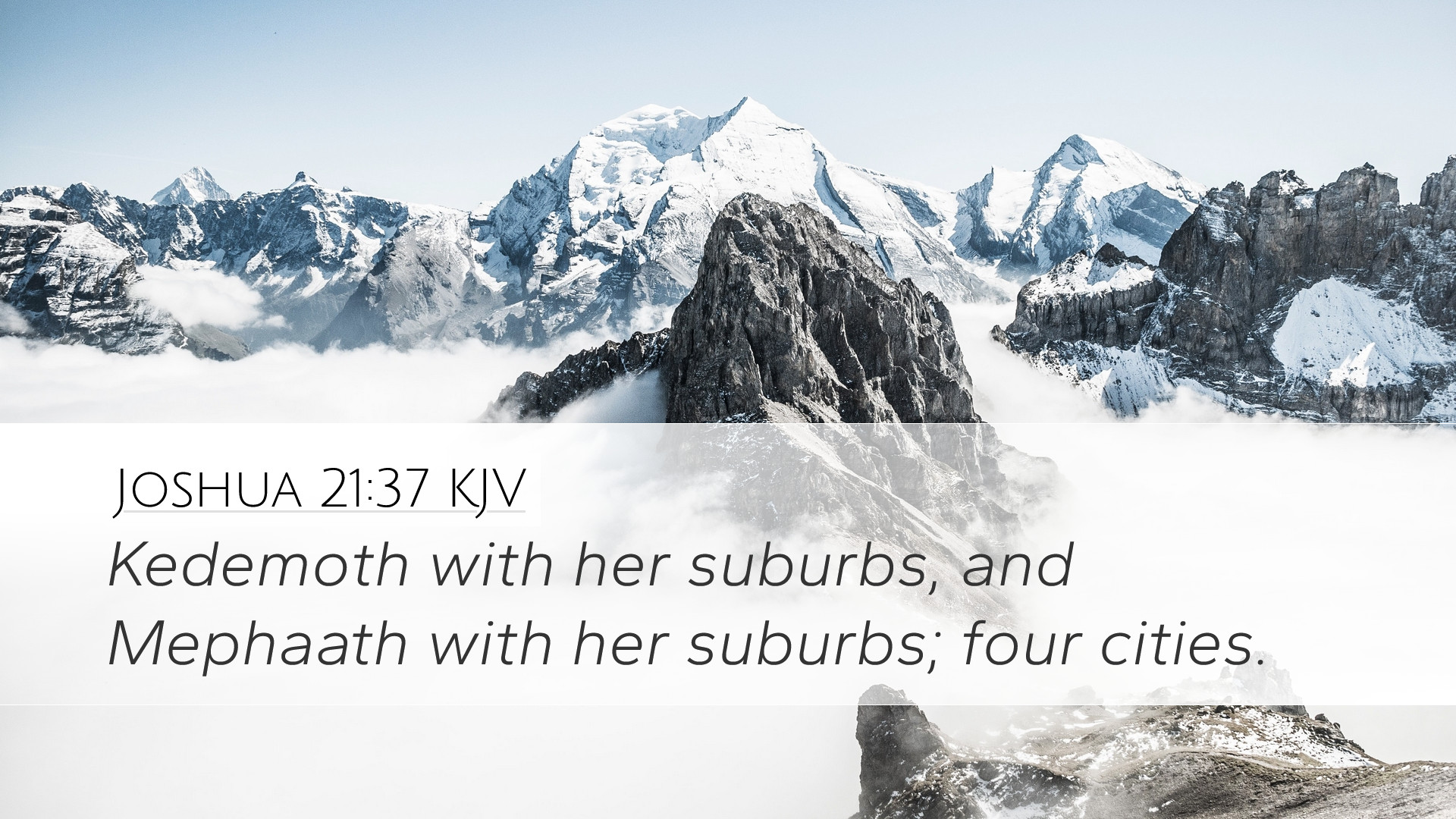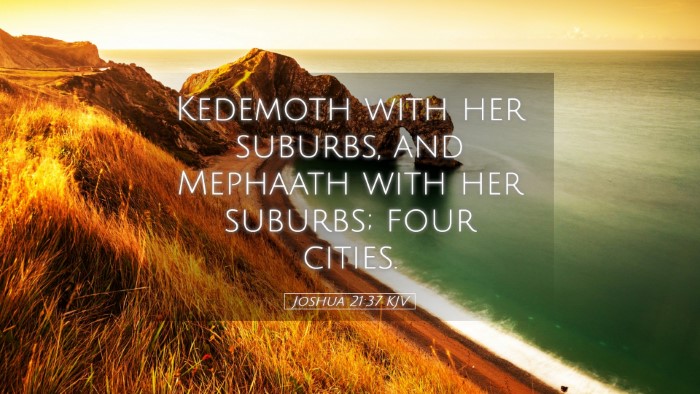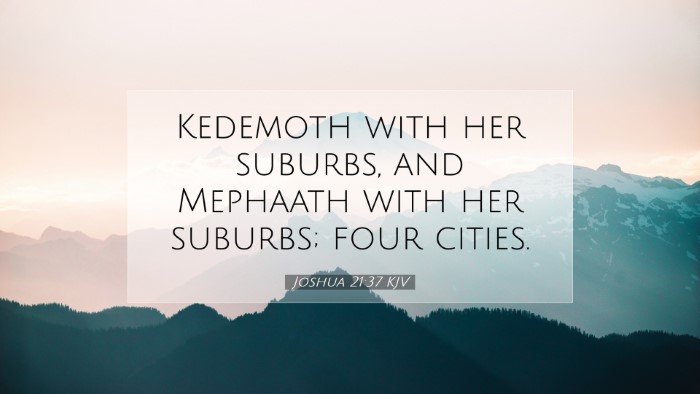Commentary on Joshua 21:37
Verse Text: "Kadesh in Galilee, and in the mountains of Naphtali".
Introduction
The verse in question, Joshua 21:37, is a pivotal component in understanding the distribution of the Levitical cities among the tribes of Israel. The mention of Kadesh in Galilee signifies not only a geographical location but also a significant historical and spiritual hub within Israel's territory. The insights from public domain commentaries provide a rich tapestry of interpretation regarding this verse, bringing forth its implications on the Levitical priesthood and its spiritual significance.
Contextual Background
The Book of Joshua narrates the conquest and distribution of the Promised Land among the tribes of Israel under the leadership of Joshua. In chapters 21 through 22, the focus shifts towards the cities designated for the Levites, a tribe set apart for serving in the sanctuary of the Lord. These cities were essential for maintaining the religious life and order among the Israelites.
Analysis of Kadesh
Kadesh in Galilee serves as a beacon of refuge and a symbol of spiritual fortitude. Matthew Henry comments on Kadesh being historically noted as a city of refuge, as it provided safety for individuals who found themselves in peril. The existence of cities of refuge in Israel highlights God's provision for justice and mercy, allowing the Israelites to seek sanctuary away from blood guilt and retaliation.
Significance of Galilee
The mention of Galilee is also layered with meaning. Albert Barnes emphasizes the strategic importance of Galilee within the tribal allocations, noting that it was a prominent area with a diverse population that would benefit from the—priestly influences of the Levites. This is crucial for understanding the spread of religious practice and instruction among the people, ensuring that God's law and ways were upheld across the land.
The Levitical Cities
- Purpose: The Levitical cities were dedicated to the service of God, and selecting Kadesh illustrates the intent to not only reach central communities but also those in the outlying and frontier areas of Israel.
- Spiritual Role: The Levites acted as spiritual leaders, judges, and teachers, thus playing a critical role in maintaining the covenantal structure established by God.
- Communal Harmony: Adam Clarke notes that the cities of Levites fostered a sense of community and unity, as they were strategically located to serve diverse tribes and ensure that God’s presence was felt throughout the land.
Historical Context
Historically, Kadesh is not merely a name but embodies the larger narrative of Israel’s journey. It signifies both a place of refuge and a point of contention, referring back to the times when Israel wandered in the wilderness. Kadesh Barnea was where a significant decision took place that affected the trajectory of the people of Israel. The choice of naming it in Galilee strengthens the connection between past failings and the present opportunities for redemption through the Levitical priesthood.
Theological Insights
Theologically, Joshua 21:37 emphasizes the holiness of God and the requirement of sanctification among the people of Israel. The allocation of Kadesh in Galilee illustrates God’s desire to dwell among His people, reminding them of His mercy through the cities of refuge and the provision of the Levitical tribe, tasked with the spiritual oversight of the nation.
Practical Applications
For pastors and theologians, this verse invites reflection on the role of leaders in God’s church today. Just as the Levites were vital in mediating between God and the congregation, modern church leaders are called to cultivate spiritual health within their communities. The implications for ministry include:
- Emphasis on Refuge: Creating spaces within the church that serve as sanctuaries and provide comfort in times of distress, echoing the role of cities of refuge.
- Teaching & Mentoring: A commitment to teaching the laws and precepts of God, fostering a culture of learning and reverence for God's word.
- Community Leadership: Encouraging church leaders to take an active role in their communities, promoting justice, mercy, and biblical truths.
Conclusion
In conclusion, Joshua 21:37 serves as a multifaceted verse rich in theological, historical, and practical insights. The city of Kadesh in Galilee symbolizes a commitment to sanctuary, community, and the role of the Levitical priesthood in maintaining the spiritual vitality of Israel. For contemporary audiences, understanding this verse is imperative for grasping the continuity of God’s design for refuge, leadership, and the emphasis on the sacred across generations.


